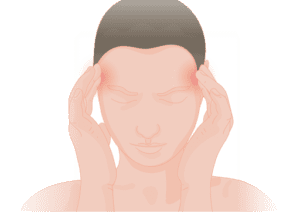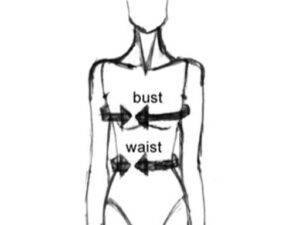We all dream big: a rewarding career, a loving partner, meaningful achievements, strong relationships, and, yes, the ideal body. But the reality is, achieving and maintaining these dreams requires intentional effort in every area of life. Have you asked yourself whether you’re ready to embrace the lifestyle changes necessary to get what you want? These changes often mean navigating indulgences, embracing challenges, and moving closer to your personal version of success.
Weight loss is a goal many of us pursue at some point in our lives. Based on my own journey—and what I’ve observed with clients—I can tell you it’s not easy. While reasons for weight loss vary, they often boil down to two core motivations: vanity and health. Regardless of your “why,” the weight loss industry is thriving, with the 2024 market projected to hit a staggering $93.8 billion.
In a previous post, I emphasized that your wellness journey is deeply personal and best guided by you and your doctor. Here, I want to offer insights specifically for those using prescription medications for weight loss. This isn’t about judging choices but about equipping you with critical information to navigate this journey effectively.
Key Questions to Reflect On
1. Do You Understand the Effects of These Medications on Your Body and Mind?
Every prescription comes with potential side effects, and weight loss drugs are no exception. Before starting a medication, dive deep into the available research. Read the fine print (yes, even the tiny font), or visit the pharmaceutical company’s website for FAQs. This step ensures you know what to expect and how to mitigate risks.
Moreover, consider your lifestyle. Some medications require avoiding specific foods, drinks, or habits. Be honest about what you’re willing to adjust. If certain changes feel unsustainable, you might face unintended consequences that outweigh the benefits of weight loss.
Extra Tip: Keep a health journal. Document your experiences daily to track patterns, reactions, and progress. This not only gives you a clearer picture but also provides valuable information for conversations with your doctor.

2. Do These Medications Make You Feel Unwell?
If you’ve started a medication and feel sick, don’t ignore it. Not every drug works for every person, and that’s okay. Talk to your doctor about the symptoms. They might tweak the dosage or switch your prescription entirely. Your body’s reactions are critical feedback—listen to them and seek solutions with your healthcare provider.
Extra Tip: Don’t downplay mild symptoms. A headache today could escalate into something more severe if left unaddressed. Most people do not share minor concerns with their doctor, but do not plow through moderate to severe side effects using other medications to relieve symptoms. You need to tell your healthcare provider.

3. Are You Losing More Than Just Fat?
This is crucial. Many rapid weight loss strategies, whether medication or extreme diets, can lead to muscle loss. Studies show that 20–30% of weight lost during these processes may come from lean body mass, including muscle. Protecting your muscle mass isn’t just about aesthetics—it’s essential for sustainable health and strength. Here’s a bit on why:
Caloric Deficit:
- These medications suppress appetite, which may result in an overall reduction in calorie and protein intake, leading the body to break down muscle for energy.
Unintentional Catabolism:
- Without sufficient dietary protein and strength training, the body may lose lean muscle along with fat during weight loss.
Slower Digestion:
- By slowing gastric emptying, these medications may reduce nutrient absorption, potentially impacting muscle preservation if protein needs aren’t met.
Steps to Preserve Muscle While Losing Weight:
- Boost Protein Intake: Aim for 1.2–2.0 grams of protein per kilogram of body weight daily. Include sources like lean meats, fish, eggs, dairy, tofu, and legumes.
- Incorporate Strength Training: Resistance exercises signal your body to retain and build muscle, even during a calorie deficit.
- Stay Active: Avoid long periods of inactivity, as consistent movement helps maintain muscle mass.
- Balance Nutrition: Include carbs for energy and healthy fats for hormone regulation.
- Pace Your Weight Loss: Gradual weight loss (1–2 pounds per week) is better for preserving muscle than rapid drops.
- Consider Supplements: Branched-chain amino acids (BCAAs) or creatine can support muscle maintenance when paired with exercise.

4. Are You Protecting Your Bone Health?
Significant weight loss can impact your bones:
- Bone Density Loss: Reduced weight means less mechanical load on bones, potentially weakening them over time.
- Nutrient Absorption Challenges: Some medications slow digestion, which may limit the absorption of calcium, vitamin D, and other nutrients critical for bone health.
- Hormonal Shifts: Weight loss can alter hormones like estrogen, which are vital for maintaining bone density.
Steps to Protect Bone Health:
- Include weight-bearing exercises like walking with a weighted vest, weight training, or certain types of yoga in your routine.
- Focus on foods rich in calcium and vitamin D, such as dairy, leafy greens, etc.
- Consider a bone density scan if you’re at high risk for osteoporosis.
- Consult with your doctor about supplements tailored to your needs.
- Research raw, food derived supplements to aid in micronutrient assimilation.
To counteract these effects, it is essential to prioritize bridging your nutrient gaps and to implement some type of weight-bearing activities.

5. Are You Mentally Prepared for the Process?
Weight loss isn’t just physical—it’s deeply emotional. Unrealistic expectations, societal pressures, and the ups and downs of progress can all take a toll. Ask yourself:
- Are you mentally ready for the commitment this requires?
- Do you have a support system to cheer you on during the tough days?
- Are you equipped to handle setbacks without giving up?
- Are you financially capable for the long haul?
- Do you have a transition plan in place once you have achieved your goal on the medication?
Tips for Mental Wellness on This Journey:
- Practice mindfulness: Meditation or journaling can help you stay grounded.
- Celebrate small wins: Every step forward matters, whether it’s losing a pound or saying no to an unhealthy habit.
- Seek professional support: A therapist or coach specializing in health and wellness can offer strategies to keep you motivated.

The Bigger Picture
These considerations go beyond weight loss—they’re about safeguarding your overall wellness. Whether you’re on this journey or supporting a loved one, education and empathy are key. Start meaningful, judgment-free conversations. Share this blog post, offer high-protein meals, or suggest a walk together to build healthier habits.
Weight loss is deeply personal, but no one has to go through it alone. If this resonates with you, know that I’m here, rooting for your success. Together, we can focus on gaining health and confidence—not just shedding pounds.




